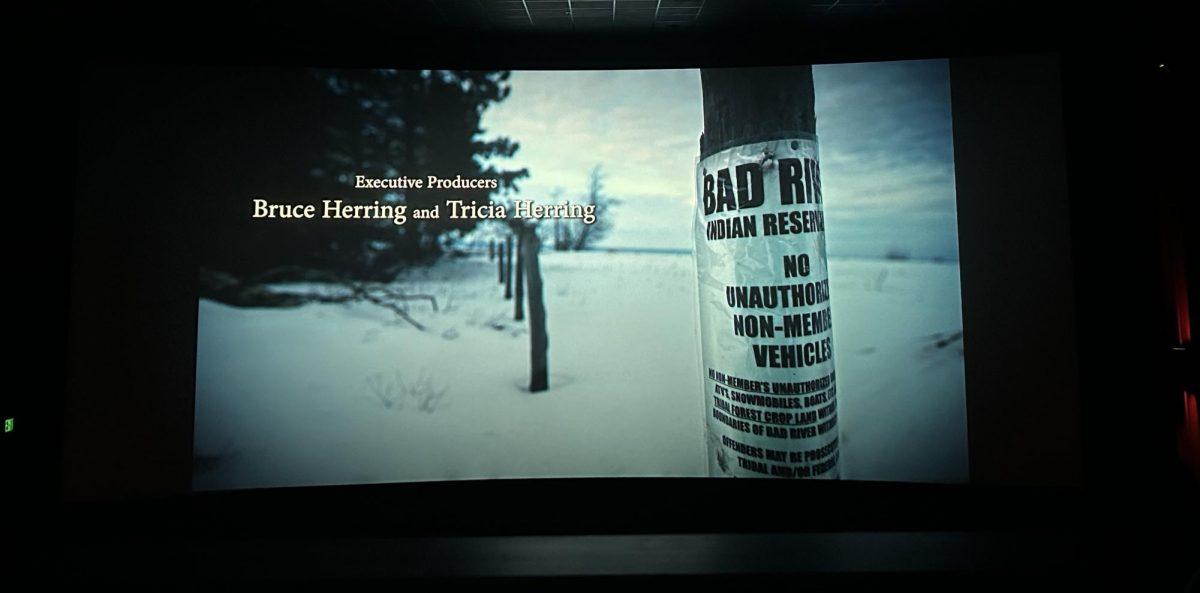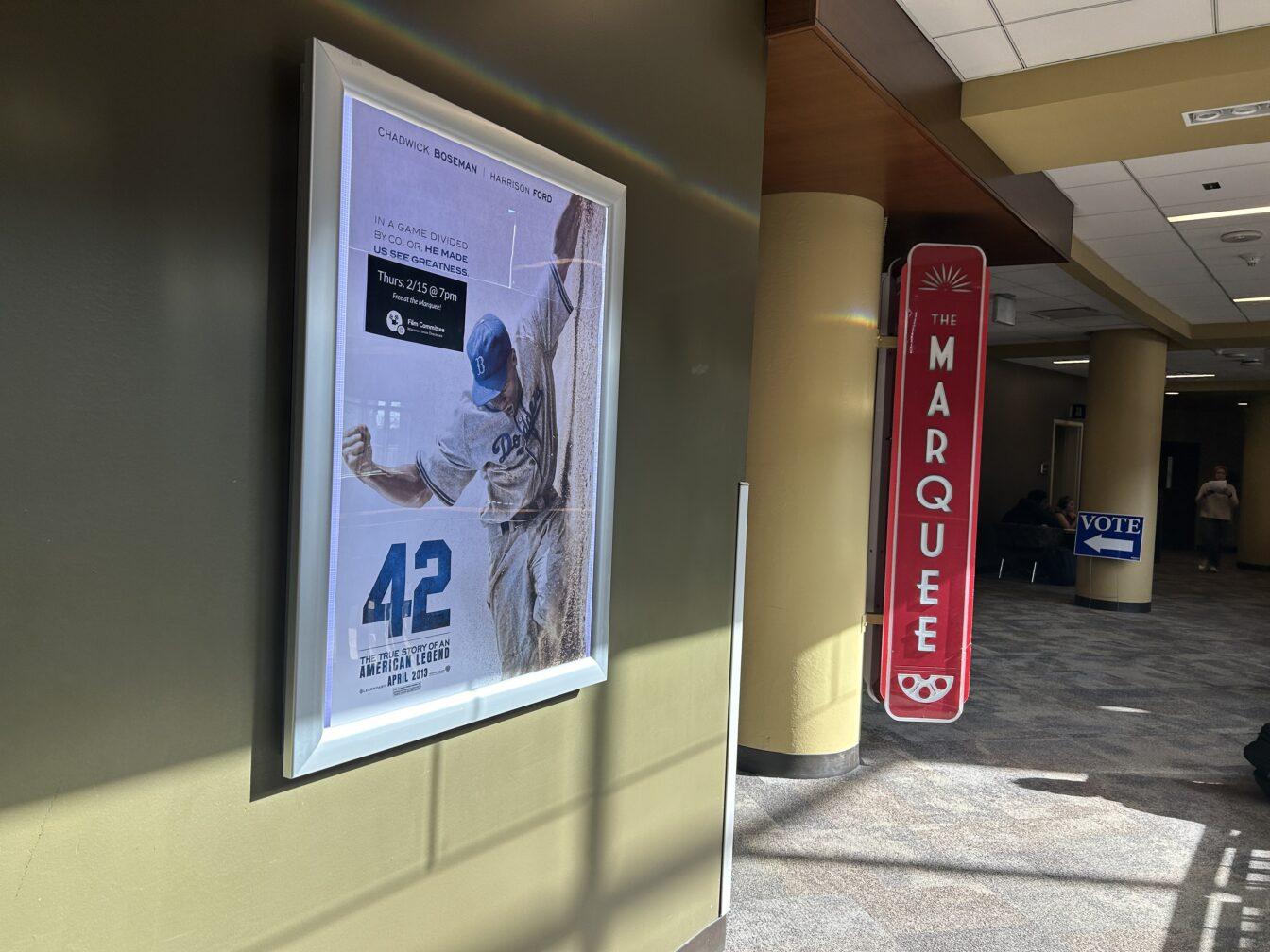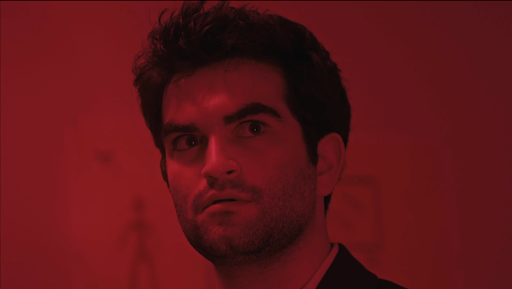The lofty, prepossessing film “Flight” tries to be a myriad of things and only succeeds at some of them. Starting off strong and disguising its sly motive, “Flight” follows the plight of addict pilot Whip Whitman, a man of many vices who salvages a seemingly-doomed commercial flight out of a tailspin, saving many of the souls onboard. Intoxicated to a laughably minute degree, Whip is dogged by reporters, demonized by a search committee and forced to face a vague past, seen only in snippets of video and dull sepia photographs.
This is the first live-action film Robert Zemeckis (“A Christmas Carol”) has made since the award-winning “Cast Away.” An obvious ploy to make another critically-acclaimed venture, “Flight” does an exceptional job of creating memorable and intriguing characters. Denzel Washington (“Unstoppable”) portrays Whip, a smug, fast-talking pilot who does every drug he can get his hands on while denying he has a problem and treading lightly through the criminal proceedings that the crash inspires.
Interweaved in Whip’s tale is that of Nicole (Kelly Reilly, “Sherlock Holmes”), a heroin addict and self-proclaimed alcoholic who has a harrowing past littered with grief. Although Nicole has little reason for formally appearing at the hospital where Whip is interred or becoming the main reason for his self-reflection, she is given a great breadth and far more gravitas than she deserves. While Reilly strikes the best balance between sallow and sweet in the film, her despondent character is still a plot device – and an obvious one at that.
The film plays itself out as a morality tale without any shame surrounding that premise. As clich?d as it sounds, Washington goes through the actions and inactions of an addict, lies about everything to everyone and learns a lesson. There are some complexities laced throughout, but in basic terms, it’s the same do-or-die story of addiction we have seen so many times before. This is not to say Washington’s performance is any less poignant or disturbing to the point of reality; yet it is one that is revealed through flawed writing that pretends human behavior is a win or lose situation.
“Flight” stays enticing throughout, but the ending is lacking the much-needed credibility that the rest of the film builds toward with effective storytelling. It falls flat.
There is very little in the way of humor, unless it is self-inflicted gallows humor from the protagonist. This film is a gritty, moving portrayal of a flawed individual and may be Washington’s greatest performance since “Training Day.” The level of dishonesty, the lack of understanding or awareness in the main character is something that makes this a struggle to comprehend and futile to argue about.
That being said, “Flight” was so abundantly tired and rigid in its format that it became formulaic at times – the dead mother, the airplane flying overhead from the hotel room window before the trial, the dumping of the liquor down the drain. They have all been seen in better films a thousand times before.
The cast seems to be experienced. Bruce Greenwood (“Super 8”) puts in another stellar performance as the capable stooge to Whip’s hooliganism and addiction. John Goodman (“Argo”) who seems to be blitzkrieging the box-office in supporting roles this year, reinvents the persona of the coke dealer as a man with a thankless job, helping out his client Whip while blurring the line between vulgar thespian and wild child. Although Goodman doesn’t appear onscreen for a substantial amount of time, he comes away looking the most devolved and uncouth in a film that frequently depicts cocaine use, nudity and slurred curse words. Even Don Cheadle (“The Guard”) turns up as the unimpressed but ferocious lawyer who tries to get Whip’s convictions overturned or at least ignored.
It is not the fact that there is redemption or even the fervent religious overtones that permeate large portions of the film, but the blatant cop-out at the very end that shelters the realities of addiction. The ending glosses over the relapses and struggles of an addict’s self-admittance that a problem exists.
“Flight” stays true to the life struggles of those afflicted with this disease, but its attempt to compromise morality and accuracy with entertainment results in preachiness overall. This film takes the reality out of a real set of circumstances, and for that, it suffers amid its own newfound pretension.
3.5 out of 5 stars




















